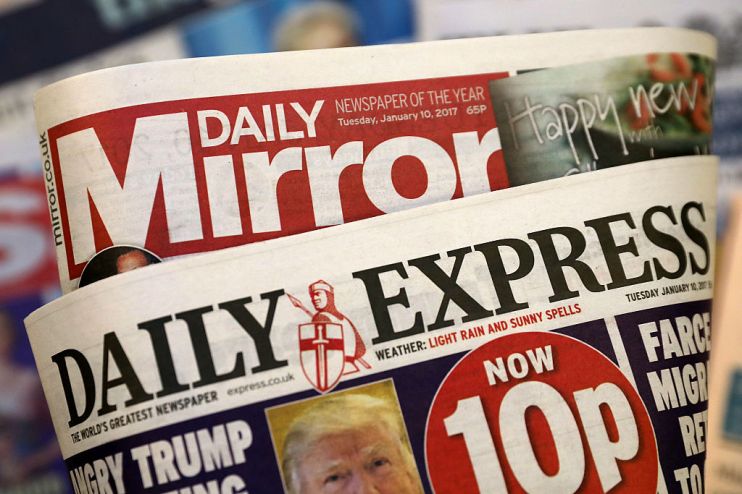Mirror publisher reports 14 per cent slump in revenue as print sales plummet

Daily Mirror publisher Reach has reported a 14 per cent in revenue for the five months to November, after lockdowns across the UK hammered print sales.
Reach, which owns 240 regional news titles, booked a 19.6 per cent decline in print revenue for the period. The group is now consulting on proposals to permanently close two of its six printing sites.
However, the Express publisher said that overall group performance for the period exceeded market expectations, with continued strong digital revenue growth of 16.2 per cent for the half-year.
The media giant, which also owns titles including the Newcastle Chronicle, Daily Star, Liverpool Echo and Bristol Post, in September said it had become the fifth-largest platform in the UK after Google, Facebook Microsoft and Amazon.
Customer registrations have now exceeded 4.25m, and the company is on track to deliver its target to sign up 10m fresh registrations by the end of 2022.
Reach said it will push ahead with plans to launch its Reach ID next month, which will “unlock significant potential in the form of customer insights” and monetizable user data.
The publisher said it expects strong digital growth and resilient circulation to continue into December, “while recognising that the current macroeconomic uncertainties make forecasting more challenging”.
Chief executive Jim Mullen said: “The headwinds from Covid-19 have been considerable, but while we remain mindful of potential impacts from the current lockdowns, we approach the end of the year with a strong and growing digital business, resilient print circulation sales, and a new, efficient operating model.
“Our customer value strategy is now entering a new phase, with an increased focus on business intelligence and insight.”
It comes after the coronavirus crisis wiped out a strong start for the publishing group, with the announcement of a national lockdown decimating advertising revenue and circulation numbers — even at a time of increased news consumption.
Group revenue plummeted 27.5 per cent in the first three months of the year, followed by a steeper slump of 30.5 per cent year-on-year in April, when the impact of Covid-19 was at its worst.
The company said in July it would cut about 550 jobs, equivalent to roughly 12 per cent of its workforce, as the group attempted to preserve cash in the wake of the crisis.